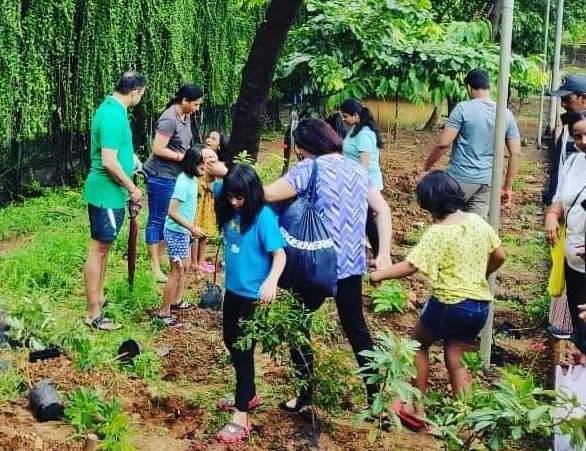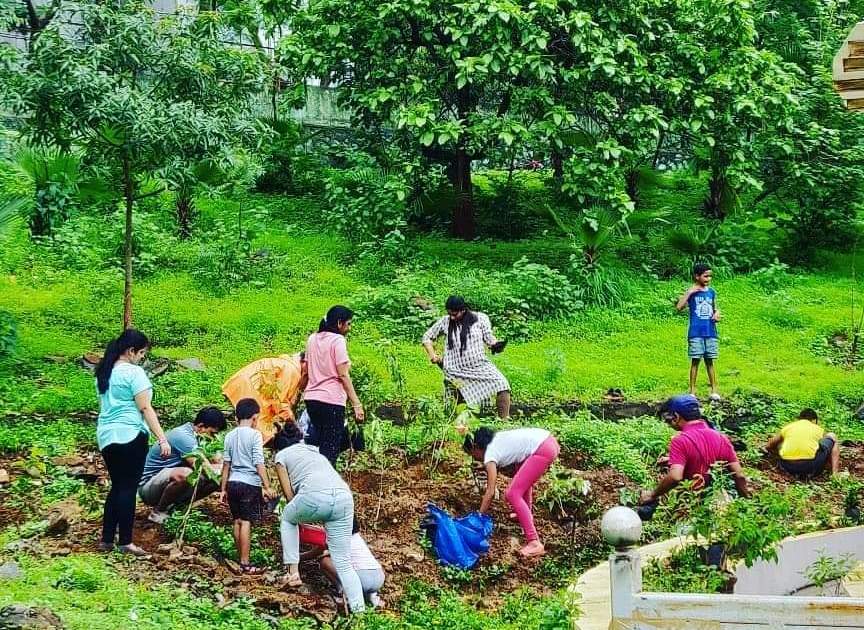“If nothing ever changed, there’d be no butterflies.” – Unknown
Everyone learns about the life cycle of the butterfly right in primary school. Incredible isn’t it? – how it metamorphoses from a crawly caterpillar into a beautiful fluttery creature. With a short life cycle of about 30 days, it responds quickly to climatic and habitat changes, and therefore the presence of butterflies is increasingly being used as an environmental indicator. Butterflies are useful pollinators, and there are several plants that rely on them to propagate.
There are about 20,000 species of butterflies in the world, and 1,400 of these are found in India. About 150 have been recorded in Mumbai alone. As with many wild creatures, the natural habitats of butterflies (the grasslands, forests, salt marshes, mangroves, wetlands, etc.), have been encroached, destroyed and undergone degradation over the years, resulting in many species struggling to survive.
Naturalists like Mumbai’s Issac Kehimkar have spent years documenting the local butterflies, and encouraging people to help in their conservation by growing their own butterfly gardens.
Lokhandwala Township in Kandivali East is located about 5 km from the Borivali National Park. In a 1 kilometre radius, the residents not only have a beautiful view of the hills that abut the national park, but also over 10 of their very own public parks. There really is a lot of greenery, but what was missing, as members of wAc (We All Connect) discovered, was a butterfly garden.
wAc is a voluntary community group that promotes bonding and oneness among residents of various townships in the western suburbs of Mumbai.
It was Mahatma Gandhi’s inspirational quote, “Be the change you want to see in the world”, that motivated the formation of wAc. Towards this, over the past few years, wAc has undertaken initiatives such as planting / nurturing of tree saplings and painting of walls in Malad and Kandivali. Last monsoon, the wAc team, including myself, started working towards the township’s first butterfly garden.
Building a butterfly garden
The most important step was to identify the place that could be made into the garden. After surveying all the parks and open spaces in the township, we shortlisted a centrally located playground, Vilasrao Deshmukh Ground, primarily because its huge area meant that there would be space for the garden right along its periphery. Being a public area, we needed to get approval from the Municipal Corporation of Greater Mumbai (MCGM). For this we approached our local MLA Mr Atul Bhatkalkar who was very supportive.
The next thing was to rope in experts who could help in its execution. We were fortunate to be able to connect with two very knowledgeable citizens – Dr Singh, a doctor from the neighbouring locality, Thakur Village, who devotes major time in planting trees, and Mr Ajay Nadkarni, who has built an amazing butterfly garden on his terrace in Vile Parle.
Our plans of a butterfly garden, got them super excited and both were totally involved in the planning. We decided to do the plantation drive just before the peak monsoons, on 6th July 2019. So all our planning was targeted for this day.
Ajay recommended the list of butterfly attracting plants to be sourced and planted. These included Jamaican Spike, Ixora, Lantana, Icecream Creepers and many others.
The point to note when choosing plants is that, different species of butterflies are attracted to different plants and flowers. Butterflies in general love bright coloured flowers. So while they will come to feed on the nectar of most flowers, they will lay their eggs only on the leaves of specific host plants that the caterpillar will eat. It’s necessary to have these host plants in our garden if we want the butterflies to breed.
It’s also important to list the butterflies that we can expect to see in the garden. Every geographic area has certain species of butterflies that are native to it. We need to choose the host plants of those species of butterflies that will thrive in our area. Those commonly found in Mumbai include Plain Tiger, Tailed Jay, Grass Jewel, Common Mormon, Common Emigrant and Common Crow.

Choosing the plants
Totally over 300 plants, of different sizes and maturity, were procured from nurseries across the city, and the cost was met by contributions from wAc members and residents. MCGM provided good red soil and we got manure from some of the societies’ in-house composting.
In order for the plants to grow well, they need to have decent sunlight. Also, butterflies like to warm themselves in the sun, so it helps to have the plants they like in sunny spots. MCGM helped us in marking the plantation spots and digging the holes.
On plantation day, Vilasrao Deshmukh Ground was buzzing with activity. Students of the neighbourhood school, Lokhandwala Foundation School were there in large numbers, many along with their parents. There were senior citizens too.
People who live in high rises hardly get an opportunity to do proper gardening. Now everyone was looking forward to getting their hands muddy and doing something innovative in the township. It took us the whole morning. When we had finally finished all the planting, we knew it was a mission well accomplished.

As the garden is in a public park, it is maintained by the MCGM staff, and they’ve done a very good job in nurturing all the plants over the past year. The plants have grown, the flowers look really pretty and when we see butterflies on them, we feel so satisfied that our team work has helped in their conservation.
Lokhandwala Township has a Butterfly Garden and the residents are proud of it!
We were hoping that independent housing societies in the township would set up butterfly gardens in their own premises. With the success of this garden, we are happy that one society called Riviera Building has also set up a butterfly garden with wAc’s assistance.
Butterflies are one group of insects that are a pleasure to have around, and as we have found, attracting them to our doorstep isn’t all that difficult. Go ahead and give it a try.
Related articles
Not just Lalbagh, your small neighbourhood park too can protect Bengaluru’s biodiversity
How 15 citizens are building about 8000 sq m of forests in Bengaluru
“Delivering” a butterfly